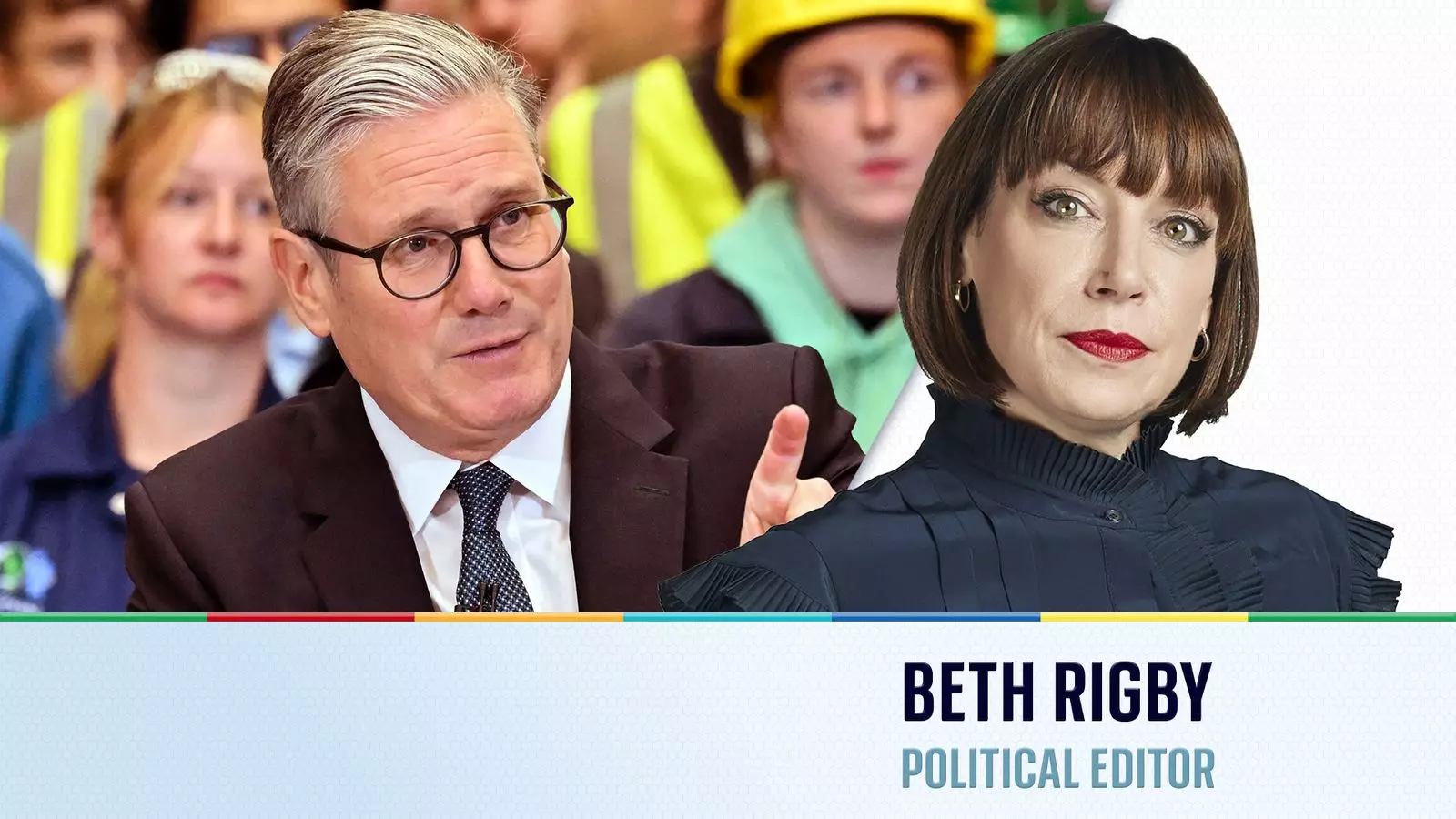Clement Attlee, a titan of Labour politics, stands as the architect of the welfare state, a legacy that shaped an era of progressive social policies and collective responsibility in Britain. Fast forward to the present, where the political landscape seems to be morphing under the stewardship of Sir Keir Starmer. His recent proclamations on defense indicate a seismic shift from welfare-centric governance to an almost militaristic posture. Starmer is positioning the UK not just defensively but as a potential warfare state, raising alarms about our readiness for threats that, according to him, loom ominously in the horizon. This ideological shift is nothing less than disconcerting; it beckons the question—what price are we willing to pay for safety in an age marked by uncertainty?
The War Footing Rhetoric
Standing at a shipbuilding yard in Glasgow, a site steeped in maritime history and labor pride, Starmer articulated the pressing need for the UK to ramp up its military readiness, proclaiming that British forces must transition to “war-fighting readiness.” This hyperbolic rhetoric evokes an era reminiscent of the Cold War, suggesting that our national consciousness is once again steeped in the specter of conflict. The prime minister’s warning that Britain faces a more “serious and immediate” threat than it has for decades is striking, but it also casts an unsettling shadow over the very fabric of our democracy. By appealing to fear, is Starmer introducing a form of governance that prioritizes military preparedness over social welfare?
A Contradiction Unveiled
Starmer’s strategic defense initiatives come with a promise: fulfilling a vast 10-year plan that will supposedly fortify the UK’s defenses. But there lies a contradiction at the heart of this plan; despite urging for aggressive military enhancements, he has yet to commit to a necessary increase in defense spending to 3% of GDP. Such fiscal prudence raises eyebrows—how can one tout readiness for war while skirting the uncomfortable realities of budget allocations? This hedging embodies a brand of “sticking plaster politics” that we were promised would be discarded. Rather than making tough, necessary choices, Starmer appears caught in a quagmire of political appeasement, opting for band-aid solutions that signal a lack of resolve and vision.
The Welfare-State Balancing Act
What is striking is how this demand for military readiness collides with the pressing needs of a public still grappling with the fallout from austerity measures. Starmer’s difficulties in addressing winter fuel allowances for pensioners and the two-child benefit cap reflect a significant tension between warfare readiness and welfare imperatives. By hinting at potential reversals on these critical welfare issues, Starmer runs the risk of alienating his support base—people who expect him to prioritize their economic well-being over an inflated sense of national pride. This inconsistency also raises broader questions about his vision; can one genuinely champion a welfare state while heralding an agenda steeped in a militaristic ethos?
The Unforeseen Consequences
Starmer’s dilemma underscores a critical juncture for Labour and for Britain as a whole. To sustain a militaristic approach, one must be prepared to pass the costs onto the very fabric of social welfare that has historically held the nation together. The idea that one can maintain robust social programs alongside significant military investments without substantial sacrifice reflects either a disconnect from fiscal reality or an unwillingness to confront the penalties of choice. With a budget requirement of an additional £13 billion for defense spending, Starmer’s hesitation in articulating how he intends to balance these competing demands demonstrates an unsettling indecision at a time when clarity and boldness are essential.
Ultimately, the path that lies ahead for Sir Keir Starmer will determine more than just the perception of Labour’s governance; it will shape the very identity of British values in the years to come. If national security continues to eclipse social welfare, we may find ourselves in a perverse paradox where the very populace being asked to prepare for the specter of war simultaneously suffers the indignities of neglect. The choice is stark: will we prioritize a fortified military over a flourishing welfare state, or will we navigate a pathway that recognizes the interdependence of security and social support?

